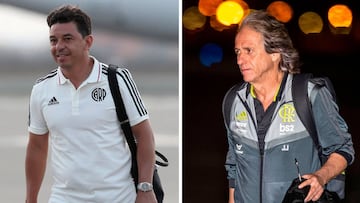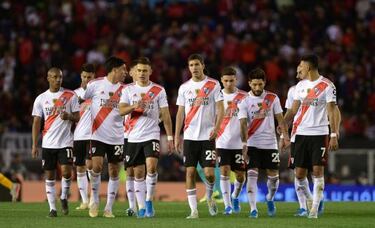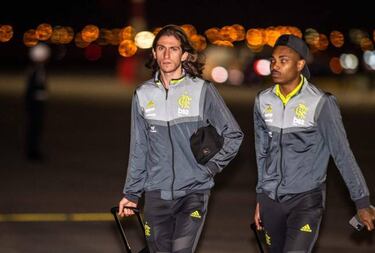Charismatic coaches take centre stage in Copa Libertadores
This year's Libertadores final features two of the biggest clubs in South America, but the River-Flamengo tie is unusual in that attention is focused as much on the coaches as the players.

The coaching contest between River Plate's Marcelo Gallardo and Flamengo's Portuguese boss Jorge Jesus pitches a local lad against a foreign hire, a relative youngster against a veteran, and a quiet club stalwart meeting a voluble outsider.
At River, where he starred as a player, Gallardo has an almost god-like status.
In his first season in charge in 2014, the softly-spoken 43-year-old led them to the Copa Sudamericana, South America’s equivalent of the Europa League. A year later, he led them to the Libertadores title for the first time in almost two decades.

They won the Libertadores again last year and are aiming to become the first team to win the trophy twice in a row since rivals Boca Juniors in 2001.
Gallardo’s ability to build and rebuild in a region where good players seldom stay at one club for very long, has long been overlooked outside South America, much to the bemusement of his peers.
"What Gallardo has done is incredible, the level of results and consistency, year after year," Manchester City coach Pep Guardiola said earlier this year. "It’s inexplicable to me that he is not nominated for the best coach in the world."
His opposite number on Saturday may not be ranked among the best in the world, but Jesus has a lofty reputation in his native Portugal having led Benfica and Sporting Lisbon to an array of trophies.
Jesus arrived at Flamengo in June and his side are unbeaten since the first Sunday in August, with performances that are reminiscent of the great 1980s-era side featuring Zico, Junior and Leandro.
Already champions-elect of Brazil's Serie A, if they can win in Lima they should become the first team to complete a league and Libertadores double since Pele’s Santos in 1963.

Jesus winning over Brazilians
Jesus, 65, would also be the first foreign coach to lead a Brazilian side to the Libertadores, the region’s premier club competition.
His status as a foreigner has riled and enchanted Brazilians in equal measure.
🤩 Every #Libertadores Final in history! This Saturday, #Flamengo and #River face off in the 6⃣0⃣th final all-time!
— CONMEBOL Libertadores (@TheLibertadores) November 20, 2019
🇧🇷🤔🇦🇷 Who will lift the trophy in Lima? pic.twitter.com/MYzPku62QW
Fans love his presence, with his flowing grey hair, public dressing down of players, and strong Portuguese accent.
Brazilian coaches, however, have chafed at the pundits’ fawning attention.
His methods, and their evident success, have nevertheless prompted a long-overdue conversation about globalisation in the insular world of Brazilian football.
Related stories
"What he brought in terms of intensity and aggression is different," said Leonardo, the former Flamengo player who is Sporting Director at Paris St Germain. "That is something the Brazil league had lost. It is very European.
"People are going to be talking about this for years to come."